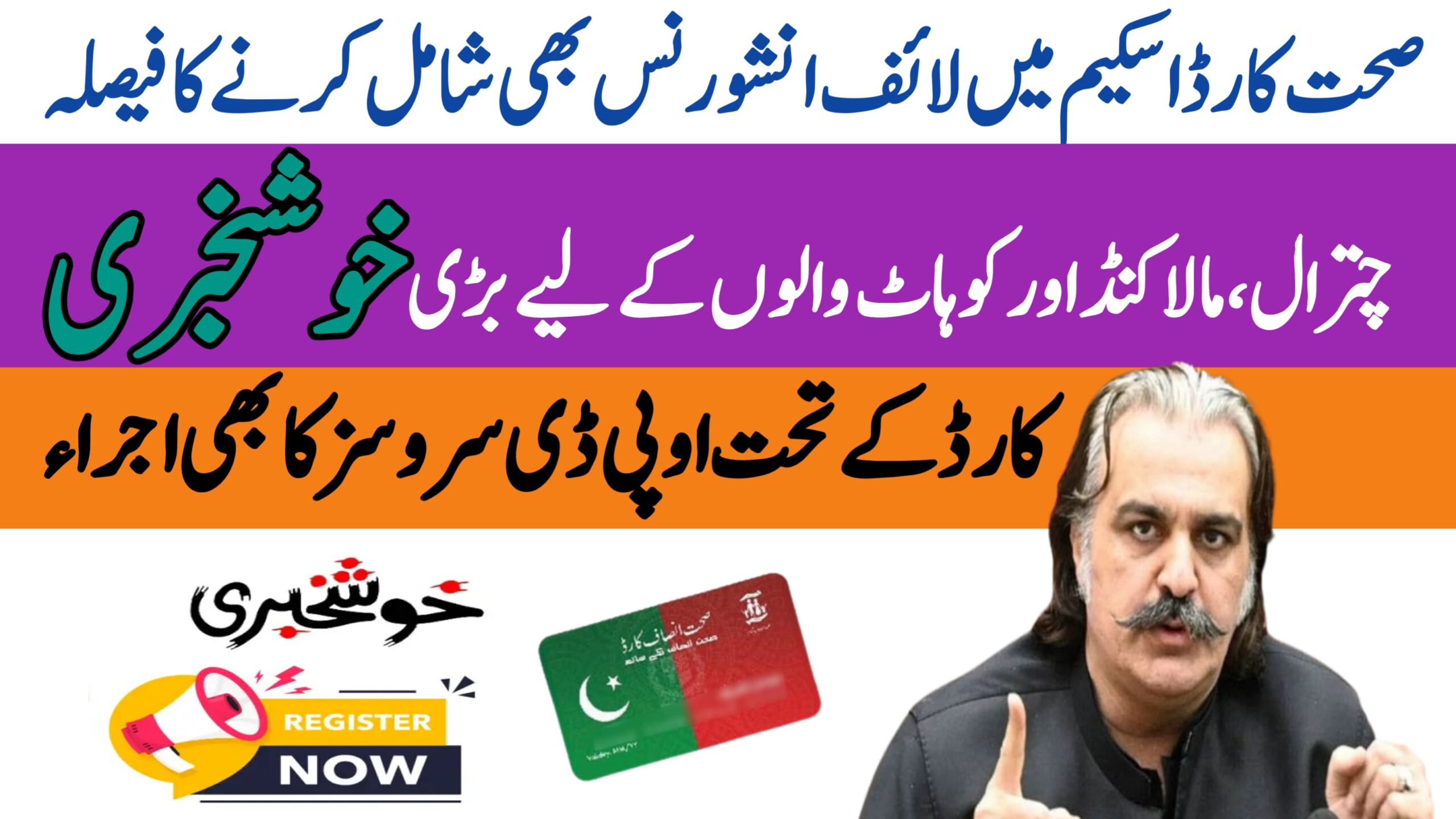Introduction
The Health Card Scheme in Pakistan, widely known as the Sehat Card or Sehat Sahulat Programme, has been a significant step toward providing free healthcare services to millions of citizens. In recent developments, the government has decided to expand the program by integrating an insurance component and introducing free Outpatient Department (OPD) services in several cities. This move is expected to increase access to medical facilities, reduce financial burdens on low-income families, and improve overall public health outcomes.
Background of the Sehat Card Scheme
The Sehat Card Scheme was launched to ensure that citizens—particularly those from low-income backgrounds—can access quality healthcare without worrying about the cost. Initially, the program covered inpatient services, including surgeries, hospital admissions, and specialized treatments. Over the years, the scheme expanded to include more hospitals, both public and private, enabling patients to choose where to receive treatment.
However, many citizens pointed out that while inpatient services were free, outpatient services such as regular checkups, diagnostic tests, and medicines were not covered. This coverage gap meant that families still had to spend out of pocket for day-to-day medical needs. The recent decision to add OPD services aims to address this issue.
You Can Read Also: Ehsaas Kafalat Program Reactivated August 2025 Latest Update
New Developments: Insurance and OPD Services
In August 2025, health authorities announced that the Sehat Card Scheme will now include insurance coverage along with free OPD facilities in selected districts. The new plan offers:
- Insurance for Broader Health Coverage
The inclusion of an insurance model will allow patients to access more medical services without financial risk. This insurance will also ensure that treatment costs in private hospitals are settled directly by the program, eliminating the need for patients to pay first and claim later. - Free OPD Services
Citizens will now be able to visit hospitals for outpatient consultations, diagnostic tests, and prescribed medicines free of charge under the Sehat Card. These services will be initially available in selected cities, with plans to expand gradually. - Extended Coverage Areas
Initially, the OPD service is being rolled out in multiple cities and districts, particularly where healthcare facilities are already well-equipped to handle additional patient load. Priority is being given to regions with limited access to specialist care.
Situation in Punjab
In Punjab, the Sehat Card program underwent significant changes earlier this year. As of June 30, 2025, the Universal Health Insurance (UHI) services through public hospitals were discontinued. The provincial government assured that specialized programs like the CM’s Child Heart Surgery Programme will continue to provide free healthcare. Critics argue that discontinuing the Sehat Card’s inpatient services in public hospitals may reduce access to care for the poorest segments of society.
Despite these changes, the government has confirmed that insurance-based models and OPD services will still be introduced in certain urban centers to ensure people can receive necessary medical attention without financial stress.
Situation in Khyber Pakhtunkhwa (KP)
Khyber Pakhtunkhwa has been more aggressive in expanding the Sehat Card Plus program. Earlier this year, the province added free OPD services in selected districts, including Mardan, Malakand, Kohat, and Chitral. The services are being provided in both public and private hospitals, as well as in Basic Health Units (BHUs) and Rural Health Units (RHUs).
Under this expansion:
- Patients receive free consultations with doctors.
- Diagnostic tests and lab work are covered.
- Essential medicines are provided at no cost.
- If further treatment or hospitalization is required, it is arranged under the same Sehat Card coverage.
KP officials have announced plans to expand the OPD initiative to other districts to achieve province-wide coverage by 2026.
Public Response
Mixed reactions have greeted the decision to include OPD services and insurance coverage. Many citizens welcome the move, saying it will significantly reduce their healthcare expenses, especially for chronic illnesses requiring regular monitoring.
On the other hand, some healthcare experts have expressed concerns about whether the system can handle the increased patient volume. They also stress the need for transparent management and timely payments to hospitals to avoid service disruptions.
Challenges Ahead
While the expansion of the Sehat Card is a positive step, several challenges remain:
- Funding and Sustainability—Ensuring continuous financial support for the program is essential to maintain the quality and availability of services.
- Hospital Capacity – With the addition of OPD services, hospitals will see a higher patient influx, requiring more staff and resources.
- Public Awareness—Many eligible families are still unaware of how to register for the Sehat Card or use it effectively.
How to Avail the New Services
For citizens who wish to take advantage of the newly added insurance and OPD facilities:
- Check Eligibility—Send your CNIC number to the official helpline via SMS or check on the official Sehat Sahulat website.
- Visit Partner Hospitals—Go to a listed hospital in your district with your CNIC to access services.
- Bring Required Documents—Your original CNIC is typically enough, but for family members, bring B-Form or proof of relationship.
Conclusion
The integration of insurance and OPD services into the Sehat Card Scheme marks a major milestone in Pakistan’s journey toward universal healthcare. While Punjab and KP are implementing these changes differently, the overall aim remains the same: to make quality healthcare accessible and affordable for all citizens. If executed efficiently, this initiative could greatly reduce the financial burden of healthcare on families, improve early disease detection through regular checkups, and lead to better long-term health outcomes for millions of Pakistanis.
For More Information, Click Here
